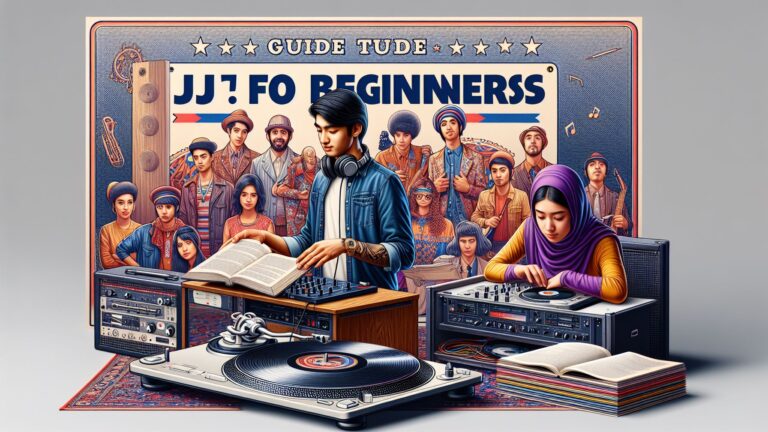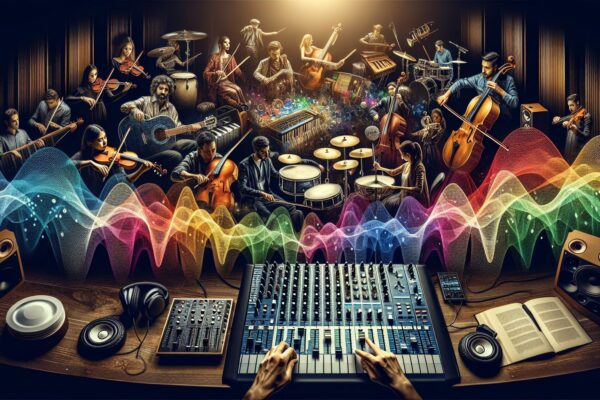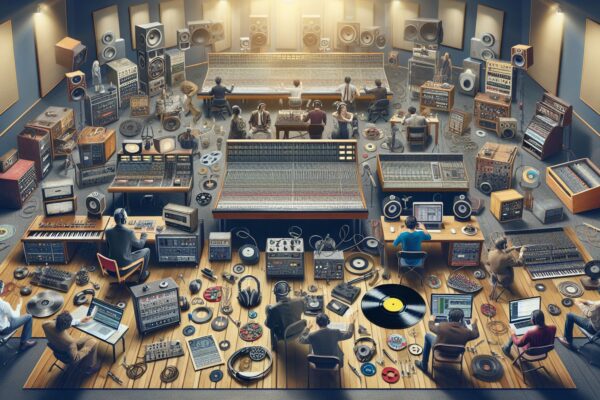So, you’ve been to countless electronic music concerts, watched DJs spinning tracks on stage, and thought to yourself, “I could totally do that.” Well, my friends, it’s time to stop dreaming and start doing. Becoming a DJ is not as hard as it may seem, but it does take dedication, passion, and a little bit of skill. Whether you’re a die-hard fan of electronic music or a member of a band looking to expand your musical horizons, this guide is for you.
Step 1: Get the Right Equipment
To start your journey to becoming a DJ, you’ll need the right tools. Invest in a good quality DJ controller, a laptop with DJ software, headphones, and speakers. These are the basic essentials that will help you mix and blend tracks seamlessly. Don’t forget to also get familiar with basic DJ equipment such as turntables and mixers, as they are still commonly used in the industry.
Step 2: Learn the Basics of Mixing
Mixing music is both an art and a science. Start by learning the basics of beatmatching, phrasing, and EQing. Practice transitioning between songs smoothly, building up and dropping energy levels in your sets, and creating a cohesive flow. Don’t be afraid to experiment with different genres and styles – after all, that’s what makes a DJ unique.
Step 3: Build Your Music Library
As a DJ, your music library is your best friend. Start by collecting a wide range of music across different genres and eras. Be open to discovering new artists and sounds – you never know what might inspire you. Use sampling music to create your own unique tracks, mashups, and remixes. The more diverse your music collection, the more versatile and interesting your DJ sets will be.
Step 4: Practice, Practice, Practice
Like any other skill, DJing takes practice. Set aside dedicated time each day to hone your craft, whether it’s practicing your beatmatching skills, experimenting with new transitions, or creating your own tracks. Don’t be discouraged by mistakes or setbacks – every great DJ started somewhere. Embrace the process and keep pushing yourself to improve.
Step 5: Network and Collaborate
Networking is key in the music industry. Attend electronic music events, connect with other DJs and producers, and share your mixes online. Collaborate with other musicians to expand your skills and gain exposure. Don’t be afraid to reach out to established DJs for advice or mentorship – you’d be surprised at how willing people are to help.
Step 6: Build Your Brand
As a DJ, your brand is just as important as your music. Create an online presence through social media, a personal website, and a professional logo. Use your brand to showcase your unique style and personality. Engage with your fans, promote your gigs, and stay on top of current music trends. Remember, consistency is key in building a strong brand.
Step 7: Start DJing Live
Once you feel confident in your skills and have built a strong music library, it’s time to start DJing live. Look for opportunities to play at local bars, clubs, and events. Start small and work your way up – every gig is an opportunity to learn and grow as a DJ. Don’t forget to promote your gigs and engage with your audience – building a loyal fan base is essential for long-term success.
Conclusion
Becoming a DJ is a rewarding journey that requires dedication, passion, and a love for music. Whether you’re a fan of electronic music or a band member looking to explore new musical avenues, the steps outlined in this guide will help you get started on your DJing career. Remember, practice makes perfect, so don’t be afraid to put in the hours to hone your skills. Embrace your creativity, stay true to your style, and always strive to push boundaries. Who knows, you might just be the next big thing in the electronic music scene. Happy DJing!




